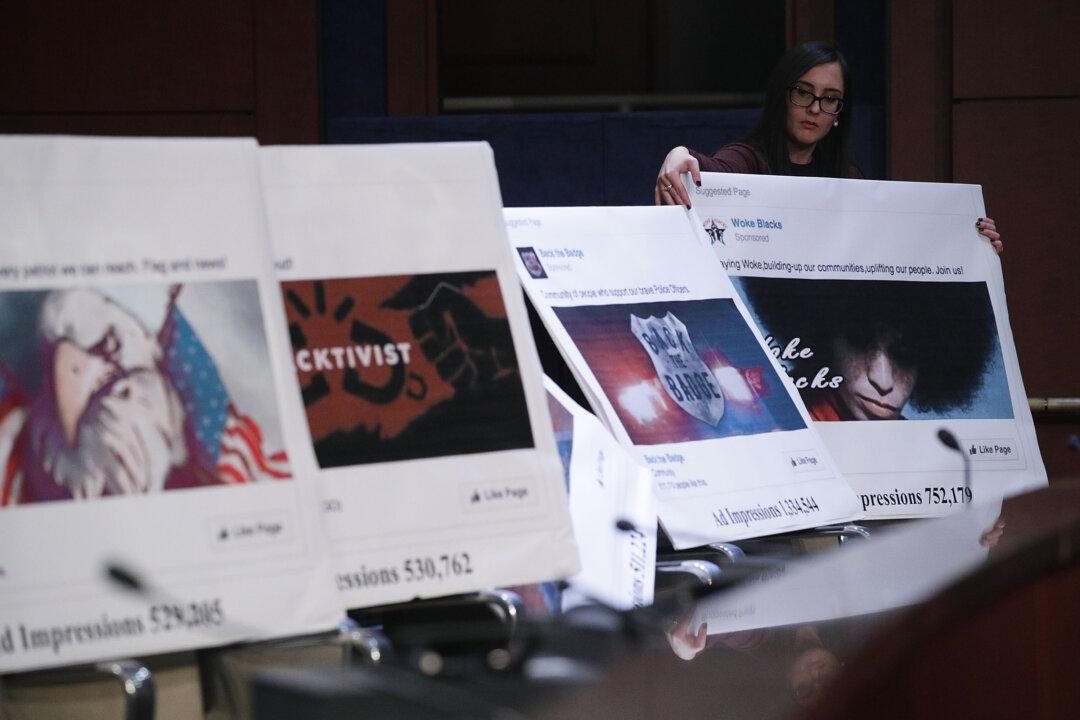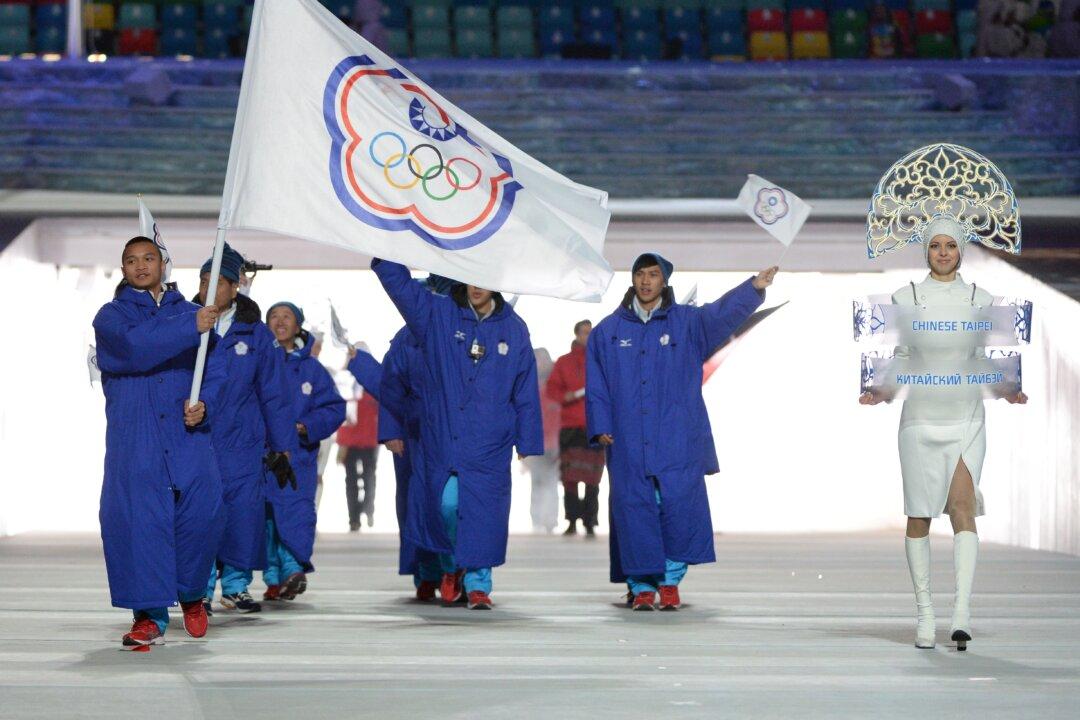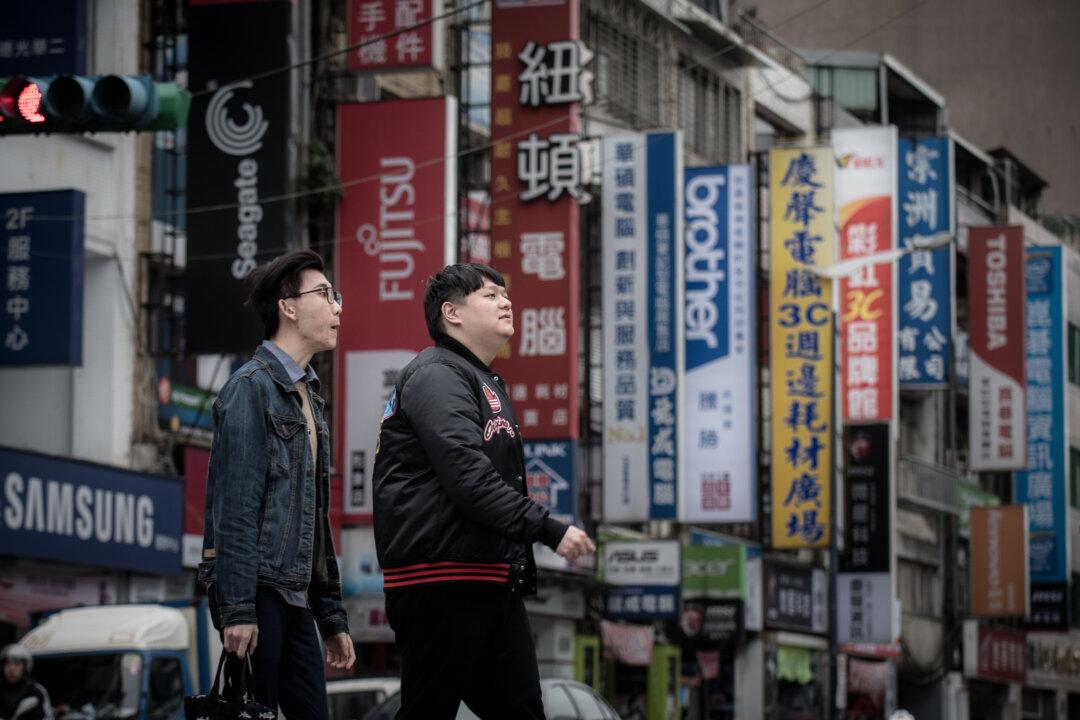A marathon series of congressional hearings on Russian election interference through social media reveal that plenty of weaknesses and vulnerabilities exist within Facebook, Twitter, and Google that allowed them to be exploited by foreign actors in the 2016 U.S. election cycle.
After a hearing before a Senate judiciary subcommittee on Oct. 31, the general counsels of Facebook, Twitter, and Google again appeared on Capitol Hill to face questions from the Senate and House intelligence committees on the morning and afternoon respectively on Nov. 1.




